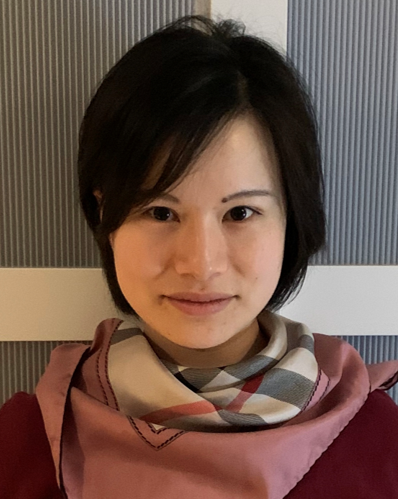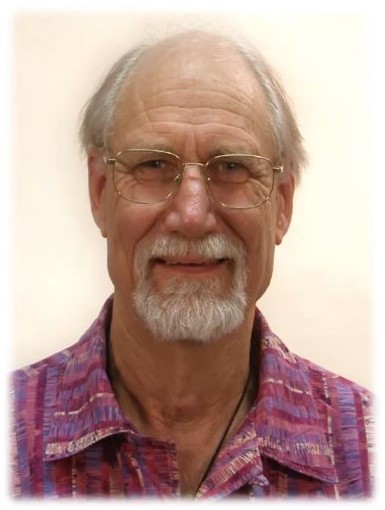Did you miss the community meeting last week?
You can view a recording of the meeting here.
Hear all about the work of Psi-k plus an update on the Psi-k Conference that will take place in Lausanne next August.
Did you miss the community meeting last week?
You can view a recording of the meeting here.
Hear all about the work of Psi-k plus an update on the Psi-k Conference that will take place in Lausanne next August.

Location: Rome, Italy |
With advances in algorithms and growing computing power, quantum Monte Carlo (QMC) methods have become a powerful tool for the description of a variety of quantum fluids and a viable alternative for high-accuracy calculations of the electronic structure of many atoms, molecules and solids. They are, however, at a less mature stage than today’s ready-for-use quantum-chemistry or density-functional packages: while the production of results on a variety of quantum many-body systems has been going on for at least three decades, a significant effort is still devoted to research and development of methods and algorithms, including real-time dynamics, super-accurate optimization strategies for trial wavefunctions and molecular structures, inputs for the density functional theory of van der Waals forces, and eventually neural networks which at least for small molecular systems seem to improve the accuracy of variational quantum Monte Carlo to the point where it outperforms other ab-initio quantum chemistry methods.
Dear Psi-k,
Last year the pandemic prompted us to organise the first Psi-k community meeting online, which aimed to reach a wide audience and discuss our activities and modes of engagement – from submitting proposals, to becoming involved in the community, to supporting its activities – all to help our field thrive.
The positive feedback and experience last year has encouraged us to organise another meeting as an open webinar on Zoom on Friday 26 November 2021 at 2pm CET – this is Central European Time (you can translate it here: https://time.is/CET); hopefully convenient for many, and with apologies to those for whom it is not.
The webinar link, that you are also welcome to share, is: https://ukri.zoom.us/j/95496792916?pwd=c2tZNFQrZnpvYTVYQUFHUHZuN0pYdz09.
The Psi-k Trustees will be present, and a short presentation will provide an update on developments over the last year and preview of future plans, notably the Psi-k Conference, which we expect to be held in person in Lausanne, 22-25 August 2022. This will be followed by Q&A and discussion that I hope will be as lively and constructive as last year.
I very much look forward to sharing our news and discussing our plans with you.
Peter Haynes (Psi-k Chair)
Psi-k is a registered UK charity governed by a board of trustees. Three trustees will be stepping down at the end of November: Angel Rubio, Mike Payne and Matthias Scheffler. Between them they have served as trustees for over 34 years and we are very grateful for their hard work in support of our community.
The board is seeking to appoint two new trustees, who will serve for five years in the first instance and bring the total number to 12. In view of the legal and other responsibilities involved in being a trustee, it is expected that these will be well-established members of our community with a track record of involvement in Psi-k e.g. having organised workshops or schools. Moreover, the board also wishes to ensure that it represents the diversity of our community, including gender, geography and the research areas of Psi-k as reflected in the working groups. The remaining trustees are listed below.
The board will be seeking suggestions for new trustees from its Scientific Advisory Committee (SAC) when it meets on Friday 26 November. All members and working groups of Psi-k are invited to consider potential trustees and to make suggestions to members of the SAC or trustees. The membership of the SAC is listed on our web site: https://psi-k.net/scientific-advisory-committee/
Anyone wishing to know more about what is involved in being a trustee is invited to contact me as the current chair of trustees.
Peter Haynes, Psi-k Chair
Current trustees:
Igor Abrikosov (Linköping University, Sweden)
Silke Biermann (École Polytechnique, France)
Stefan Blügel (Forschungszentrum Jülich, Germany)
Claudia Draxl (Humboldt University of Berlin, Germany)
Peter Haynes (Imperial College London, UK)
Nicola Marzari (EPFL, Switzerland)
Elisa Molinari (University of Modena, Italy)
Arash Mostofi (Imperial College London, UK)
Risto Nieminen (Aalto University, Finland)
Lucia Reining (École Polytechnique, France)
The DPG Spring Meeting of the Condensed Matter Division is the largest European physics conference (the second largest physics conference worldwide), covering all aspects of condensed matter and chemical physics, and materials science. For many years, Psi-k has supported a Symposium on Frontiers of Electronic-Structure Theory with a special focus topic that changes from year to year. When in person, there has also been an informal Psi-k Get-Together evening event.
In 2022 the symposium will be “Frontiers of Electronic-Structure Theory: Focus on Artificial Intelligence applied to Real Materials”, organised by Georg Kresse, Mariana Rossi and Michele Ceriotti.
We are now seeking suggestions from the community for the focus session at the 2023 DPG Spring Meeting that will be held in Dresden from 20th to 24th March. These will be discussed by the Psi-k Scientific Advisory Committee [https://psi-k.net/scientific-advisory-committee/] at its meeting on 26th November this year.
Suggestions should include a proposed title, a brief outline of the scope of the topic and its timeliness and potential organisers and invited speakers. Please send these to [email protected] by 19th November 2021. A list of recent topics covered follows.
Claudia Draxl
Symposium coordinator
Peter Haynes
Chair of Psi-k
2021: Electron-Phonon Interactions (postponed from 2020)
2019: The Interface Challenge
2018: Correlated Electron Materials
2017: New Concepts and Developments in Density Functional Theory and Beyond
2016: Topology and Transport
2015: Many-body Effects on the Nano-Scale
2014: Non-equilibrium Phenomena at the Nano-scale
2013: Discovery of Novel Functional Materials
2012: Strong Correlations from First Principles
 Congratulations to Bingqing Cheng, winner of the 5th Volker Heine Young Investigator Award. Her outstanding talk made her pioneering work in the field of machine learning interatomic potentials and applications to phase diagrams accessible to a broad audience, and it reflected the breadth and impact of her contributions.
Congratulations to Bingqing Cheng, winner of the 5th Volker Heine Young Investigator Award. Her outstanding talk made her pioneering work in the field of machine learning interatomic potentials and applications to phase diagrams accessible to a broad audience, and it reflected the breadth and impact of her contributions.
Message from Volker Heine (Psi-k’s first chairman):
 Congratulations to all of the finalists and congratulations to all the other applicants with their research! Let us celebrate all who take part in Psi-k to keep it going, and who help fund the Award, and contribute to all the Psi-k activities without any official funding beyond STFC’s administration.
Congratulations to all of the finalists and congratulations to all the other applicants with their research! Let us celebrate all who take part in Psi-k to keep it going, and who help fund the Award, and contribute to all the Psi-k activities without any official funding beyond STFC’s administration.
Dear Colleagues,
It is a pleasure to invite you to the
September 9, 14:00-17:00 CEST
The ceremony will feature presentations by the five selected finalists, with the following schedule:
Continue reading Volker Heine Young Investigator Award Ceremony
Dear Psi-k Community
As you are aware, for many years now, Psi-k has regularly produced a series of scientific highlights… Newsletter list | Psi-k.
We are constantly looking for new suggestions for highlight articles and would like to issue an open call to request suggestions for future articles. Please also note that we have a special arrangement in place for articles that have previously been submitted to Psi-k to be considered for fast track publication with IOP (Electronic Structure) or npj (computational materials).
If you have a suggestion for a future article please contact Leon Petit with details and a brief abstract of your proposed article.
We are deeply sad to report the recent passing of François Ducastelle who died on 2 July 2021.
François Ducastelle spent his entire career at ONERA. He was an internationally renowned physicist whose work on statistical physics and order-disorder transitions in alloys and more recently on the growth and spectroscopic properties of nano-objects (nanotubes, 2D materials) is widely recognized. Continue reading François Ducastelle
CECAM is launching a call for appointing a new Director to succeed Prof. Ignacio Pagonabarraga whose term expires 31 December 2022.
The Director of CECAM is appointed for a period of four years starting 1st January 2023. Under exceptional circumstances, the term can be extended for a period of maximum two years. It is expected that the successful candidate will be based in Lausanne and fully committed to CECAM.